Budget review scrutinized

By Stefanus Nashama
The Affirmative Repositioning (AR) movement has welcomed the allocation of N$600 million towards the implementation of free tertiary education, but cautioned that the funds must not turn into a “political gimmick.”
AR member of Parliament George Kambala made the remarks while contributing to the Mid-Term Budget Review presented in the National Assembly by finance minister, Ericah Shafudah.
“For the first time, we see an allocation of N$600 million for the first quarter of 2026 dedicated to implementing free tertiary education. This is a welcome step, one that deserves recognition. We must acknowledge it as a victory for students, parents, and all who have been fighting for education as a right, not a privilege,” Kambala said.
However, he warned that the allocation should not remain an “empty promise.”
“This N$600 million must not become another political promise deferred. The youth of Namibia will be watching closely. We will hold the ministry accountable to ensure that this funding reaches the classroom, not the conference table,” Kambala cautioned.
He emphasised that free tertiary education is not charity but justice, describing it as an investment that will determine “whether the Namibian nation rises or remains stagnant.”
Kambala accused the SWAPO-led government of making repeated promises without delivery.
“For more than 30 years, the administration has perfected the politics of promises without delivery, budgets without accountability, and slogans without substance,” he said.
According to him, the mid-term review should be viewed not merely as a financial exercise but as a reflection of deeper systemic failures in governance.
“The deep inequalities, crumbling schools, rising youth unemployment, corruption, violent crime, and mushrooming informal settlements, all these are the harvest of a government that long forgot the people.”
Kambala also raised concern over poor school infrastructure, saying that many schools remain under-resourced.
“Somewhere in Katima Mulilo, a young girl wakes before dawn and walks for miles to a school whose walls are cracked, whose roof leaks, and whose laboratory exists only in her dreams. She carries in her bag the hope that one day she will go to university for free, the kind of promise we make every year in this House,” he said.
Meanwhile, Popular Democratic Movement (PDM) leader McHenry Venaani also commented on the budget, acknowledging the effort but questioning whether it adequately responds to the lived realities of ordinary Namibians.
“It is in that spirit of fairness and national responsibility that I offer a balanced reflection on this Mid-Year Budget,” Venaani stated.
He also welcomed the reallocation of resources to support urgent priorities but urged that such measures must be strategic, transparent, and measurable.
“Our citizens need to see tangible results. Investing in people is not an expense, it is an investment in our nation’s future. Education, healthcare, and social services form the backbone of a productive, empowered society. These areas must remain central to our national strategy.” Landless People’s Movement (LPM) leader Bernadus Swartbooi criticised the government’s budgetary priorities, questioning whether the recent allocations to the health, youth, and housing sectors demonstrate genuine commitment or are yet another round of unfulfilled promises.
Speaking during a press conference recently, on the Mid-Term Budget Review debate, Swartbooi noted that while N$185 million has been added to the Ministry of Health and Social Services for the recruitment of 1,537 health personnel, the allocation falls short of addressing the broader challenges facing the health sector.
“This does not begin to touch on the infrastructure, the medication, and general upkeep. Does this provide a firm foundation to deliver on the ambitious goals the government has set, or does it merely signal that the ruling party is failing us once again?” Swartbooi questioned.
He argued that the government’s approach appears superficial, focusing on staffing numbers while neglecting critical issues such as dilapidated facilities, medicine shortages, and equipment maintenance in hospitals and clinics across the country.
Turning to youth development, Swartbooi questioned the effectiveness of the recently launched Youth Development Fund, which received 11,475 applications, yet only 42 projects were approved for support.
“They champion this as a success, yet less than 50 people are assisted by this fund,” he said. “How can we progress as a country with such efforts?”
He further claimed that the approved projects amounted to roughly three beneficiaries per region, calling the process exclusionary and symbolic of a government “disconnected from the real needs of young people.”
Swartbooi also cast doubt on the government’s ambitious pledge to construct 5,000 new houses in the Khomas Region within 12 months, questioning the feasibility of such a promise given Namibia’s history of delayed housing delivery and persistent urban land shortages.
- 1121 views


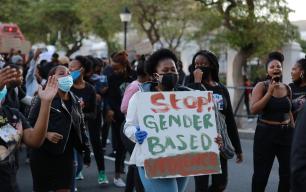
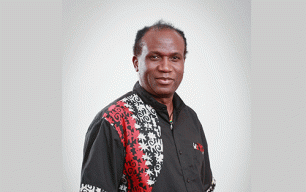
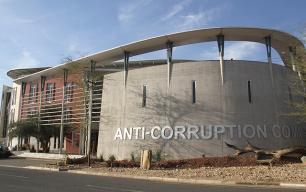
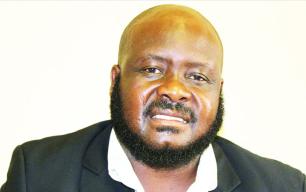
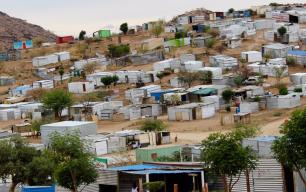

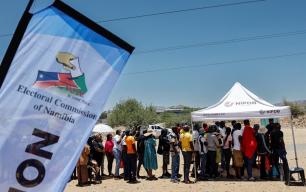
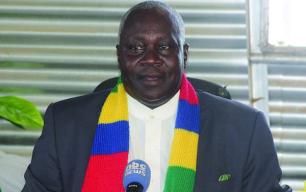
Comments